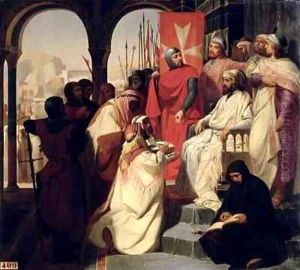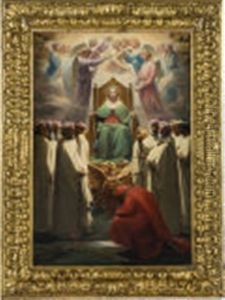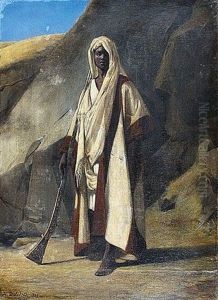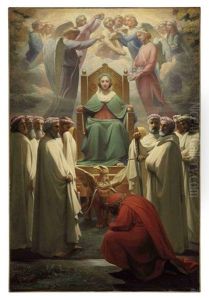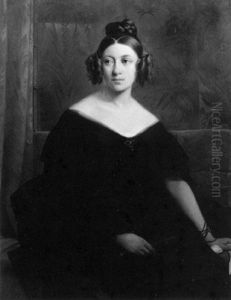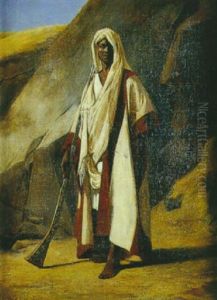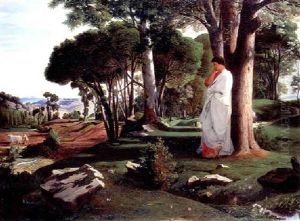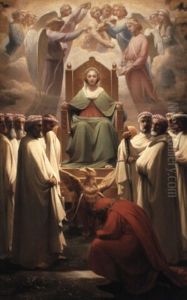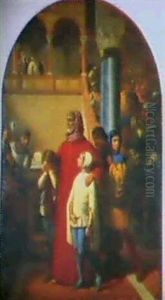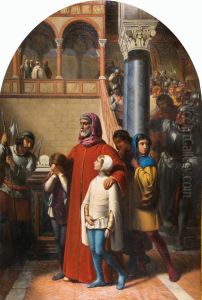Henri Delaborde Paintings
Henri François Delaborde was a French artist, engraver, art historian, and curator, born in 1811 in Rennes, France. He was not only known for his contributions to the art world through his engravings and scholarly work but also for his role in the French cultural institutions.
Delaborde began his career as an engraver and achieved recognition for his skill in this field. His engravings covered a diverse range of subjects, including reproductions of historical artworks and portraits. This work was essential in the dissemination of artworks to a broader audience in the era before photography became widespread.
In addition to his artistic practice, Delaborde was highly respected for his intellectual contributions to art history. He wrote extensively on the subject, and his scholarship was well-regarded by his contemporaries. His writings helped to shape the discipline of art history in France during the 19th century.
One of Delaborde's significant contributions to the French art world was his role as a curator. He served as the curator of prints at the Bibliothèque Nationale de France, where he managed an extensive collection of graphic arts. His expertise in the field was invaluable in the organization and expansion of the collection, which remains one of the most important resources for the study of prints and drawings.
Henri Delaborde was also involved in the administration of the French cultural sphere, serving as the director of the École des Beaux-Arts in Paris. In this position, he influenced the education of numerous artists and played a part in shaping the art scene of his time.
Delaborde's work as an artist, scholar, and curator left a lasting impact on the French art world. His dedication to the arts was recognized when he was made a Knight of the Legion of Honor, one of France's highest honors. Henri Delaborde died in 1899, leaving behind a legacy of significant contributions to the preservation and understanding of art history.
